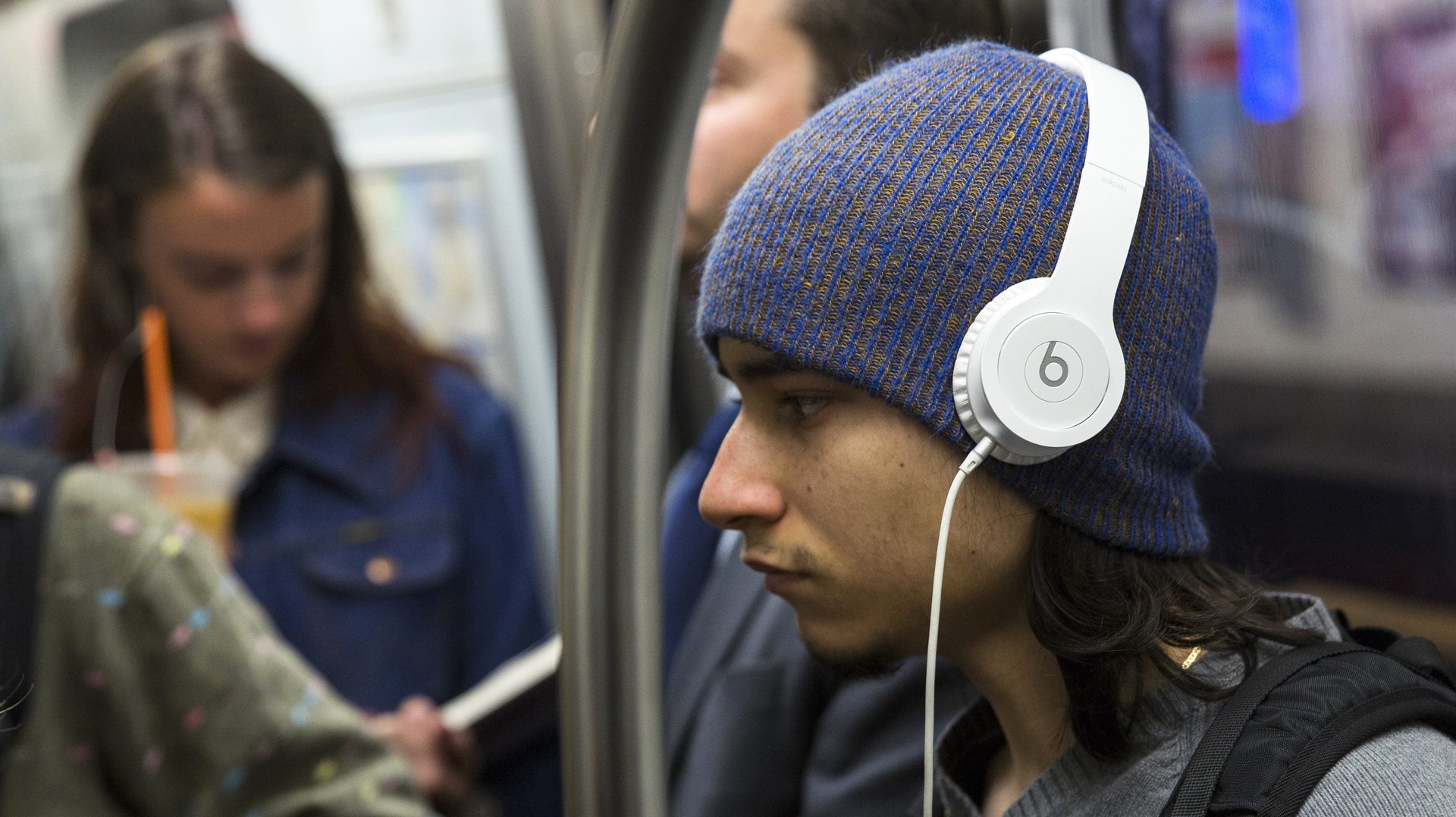Is podcast listening up or down due to the coronavirus?
Podcasts are not immune from coronavirus. According to the three different podcast analytics companies, listenership fell during March as an increasing number of Americans stayed at home due to the coronavirus. Without a commute, it seems that it’s harder for some podcasts to find a space in people’s lives, at least among Americans.


Podcasts are not immune from coronavirus. According to the three different podcast analytics companies, listenership fell during March as an increasing number of Americans stayed at home due to the coronavirus. Without a commute, it seems that it’s harder for some podcasts to find a space in people’s lives, at least among Americans.
Data provided to Quartz by the analytics firm Chartable shows that, for 7,000 podcasts that opted into their service, downloads were more than 10% lower on Wednesday, March 25, than on Feb. 26, the last Wednesday in February. Chartable tracks global downloads, but almost 80% of them come from the US.
The analytics firm Backtracks found an even greater decline for the podcasts they track: They claim listenership has fallen 20% since March 19th, when strong social distancing measures began to be put in place across the US. Data from the firm Podtrac also suggests a decline in podcast engagement, but a more modest one.
While no one podcast data company has clients that are entirely representative of the entire podcast space, the fact that all three of these firms show a decline suggests the dip is real.
The popularity of podcasts is notoriously challenging to measure. On many platforms, it is difficult to know whether a person actually listened to a podcast or just downloaded it. Even worse, a person’s phone or computer could be set to automatically download the podcast, but they totally ignore it. This means the downloads data could be underestimating the decline.
Another way to check whether podcasts are actually taking a hit is by looking at the number of reviews left on Apple’s iTunes or their mobile podcast app. Chartable found that reviews left on iTunes or Apple’s podcast app fell by more than 30% from the week of March 8-14 to March 15-21.
“Podcasts are linked to commuting for a lot of people,” said Chartable CEO Dave Zohrob. Chartable’s data shows that many fewer people are downloading podcasts on cellular networks, says Zohrob, indicating a loss of listeners on the move. Backtracks’s CEO Jonathan Gill also told Quartz that the share of listening happening during commuting hours has fallen. It’s also notable that San Francisco and New York City, two of the first US cities to enact shelter in place orders, are also two of the top US cities for podcast listening.
Not all genres have been affected evenly. Podtrac’s data show that downloads of the news shows they track have barely declined, while sports and true crime shows have been harder hit. Vox Media told the New York Times that its news shows, like “Today, Explained,” have seen 50% jumps in downloads since the start of the coronavirus.
While declining listenership will be an issue for the podcast industry, the bigger problem is likely to be the loss of advertising sales due to the cratering economy. Nicholas Quah reports on his popular podcast industry news site Hot Pods that many podcast makers have faced ad cancellations and preemptive non-renewals from companies that are cutting back due to their fears about the the economic impact of the virus.
In the long run, this pandemic does not seem likely to hurt the podcasting industry. An increasing number of people want on-demand audio, rather than accepting whatever they get from the radio. A 2019 report from management services firm PwC projected advertising revenue for podcasts to grow from $480 million in 2018 to over $1 billion in 2021. A possible threat to podcasting would be if coronavirus causes a lasting shift to working from home for a large share of workers. Otherwise, this will only be a blip in the march towards podcasts becoming an ever-larger part of audio.